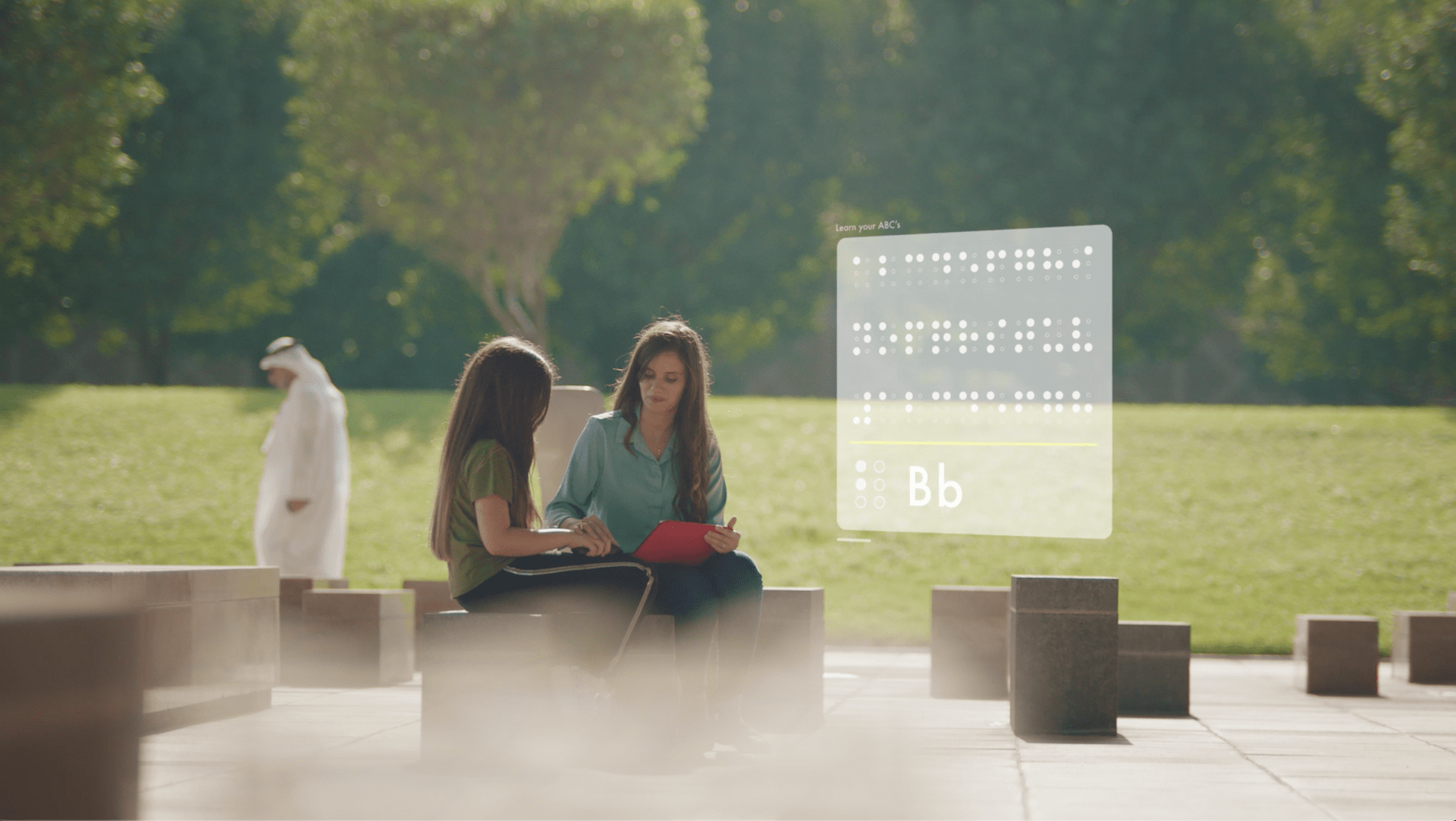Before moving to Canada to pursue a Master of Management degree with a concentration in entrepreneurship, Ramy Abdulzaher, co-founder of St. John’s-based startup Bonocle, was a university student in Qatar. In one of those college days, his friend, Bonocle’s fellow co-founder Abdelrazek Aly, had a car accident and broke his right hand.
While he recovered, Aly needed assistance to get through school, and so decided to request support from the special needs center at the university.
“We were very good friends, and used to spend a lot of time at the center, and we made a friend who was blind,” recalls Abdulzaher, who remembers how witnessing him struggle led him to wonder about potential solutions.
“A volunteer would type his assignments, then save them in a memory stick, and plug the stick into a bulky device so he could read them in Braille, and I thought, that’s a very long process for something I can do on my phone in seconds. We were all techies, so that sparked our curiosity,” he says.
A dying skill?

According to the CNIB Foundation — which stands for the Canadian Institute for the Blind — approximately 1.5 million people in the country suffer from total or partial blindness.
However, only an estimated 10 percent of them are taught Braille.
The tactile writing system was originally conceived by French educator Louis Braille, who lost his sight following a childhood accident. It consists of patterns of raised dots arranged in cells, with each cell representing a character or symbol. For a long time, Braille has represented a gateway to literacy, communication, and opportunity for the visually-impaired community.
Nevertheless, its adoption levels have gradually been dwindling, particularly given the cumbersome process involved with learning it. These hassles are something that Abdulzaher has extensive personal experience with.
“There is a lack of tools, because many of the existing tools are not affordable,” says Abdulzaher.
Continuing a legacy
Canada has a long history with Braille. In 1972, Québec-born innovator Roland Galarneau patented the Converto-Braille machine, the precursor of the Versapoint Printer.
Before Galarneau’s invention, Braille documents were produced manually, a labor-intensive and time-consuming process. His breakthrough — which included an electromagnetic typewriter, a number of radio relays, and more than 100,000 connections — enabled organizations to produce Braille materials more affordably, increasing the accessibility of educational and literary materials for visually-impaired individuals.
Now, over 50 years later, St. John’s could be at the forefront of a new revolution, once again, driven by technology. Abdulzaher considers the language a critical skill despite the ongoing debate in which many educators diminish its importance.

“Eliminating Braille is as if, let’s say, the government releases a regulation that says you don’t need to learn to read anymore, and that all information will be accessible through headsets. Of course, people would be shocked,” he mentions.
Bonocle is a portable handheld device that can fit in someone’s pocket, and it synchronizes with both tablets and smartphones through the Bonocle app. There, users can either play games to build up their Braille proficiency or convert visual content to Braille, through built-in features like the Bonocle Reader, Bonocle Notes, and more.
“Some of our games help you improve your finger sensitivity, spatial awareness, and other underlying skills that are fundamental to learning Braille, which speeds up the pace of learning,” says Abdulzaher.
Empowering families
Tara Welsh, from Corner Brook, Newfoundland, has found in Bonocle a critical ally in helping her 9-year-old son, Nathan, learn Braille.
“As a parent and someone who is new to Braille, it can be challenging to find fun ways to help your child learn, and I love that this has been a hands-on way of learning it together,” says Welsh, who also highlights the platform’s gamification features, and considers Bonocle as, “A way to use technology to make learning simpler for people living with vision loss.”
For children like Nathan, mastering Braille from an early age could make the difference between marginalization and a thriving career. A CNIB study found that Canada’s unemployment rate for those with sight loss is three times the nation’s general unemployment rate, and asserts that Braille could be a way to bridge the gap.
“Braille is vital for education, employment, and social inclusion — as vital as print is for the sighted,” said in a statement Natalie Martiniello, President of Braille Literacy Canada.
Whether Bonocle can follow in Galarneau’s steps will be seen within the next few years, but Abdulzaher remains enthused, and optimistic about their product’s impact.
“Supporting the blind community and allowing them to excel and fulfill their goals is not just a win for them, but for society as a whole. We have always been inspired by their creativity and perseverance, and their success can be an economic gain for Canada,” said Abdulzaher.

Javier Ortega-Araiza
Javier Ortega-Araiza a de multiples expériences mondiales en tant qu'écrivain et entrepreneur social, ayant voyagé dans plus de 30 pays. Aujourd'hui installé à Toronto, il est un auteur publié en anglais et en espagnol.

